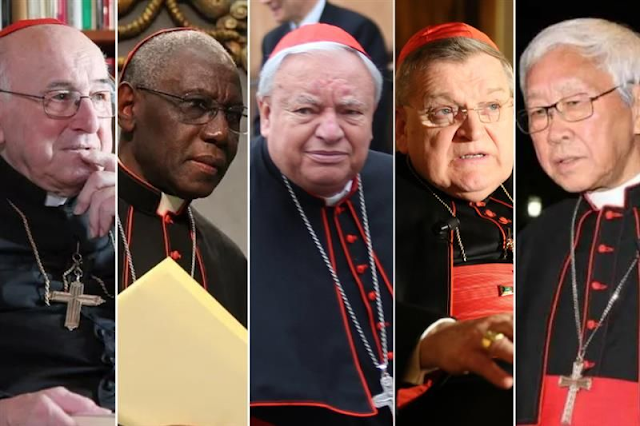Dubia answer: Pastoral wisdom is good, but it is not enough. Modernists want concessions to become norms.
The Dubia letter from five cardinals caused quite a stir before the World Synod. The Pope's answer even more so, comments Christoph Brüwer. Because Francis opens up leeway in this. But it shouldn't stay that way.
"Let your speech be: Yes, yes, no, no; whatever goes beyond this comes from evil." (Mt 5:37) Cardinals Brandmüller, Burke, Íñiguez, Sarah and Zen must have thought something like this when they read Pope Francis' answers to their Dubia letter. Instead of the usual answer, he didn't answer with "yes" or "no", but rather in more detail. The Cardinals apparently didn't like that: the Papal answers were not published, but instead a modified new list of questions was sent to the head of the church.
Fortunately, the Vatican has now published the Pope's lines. Before the eagerly awaited World Synod, the Pope actually opened up leeway on much-discussed issues such as the blessing of homosexual couples and called for “pastoral prudence”. This makes discussions on these topics possible at the universal church level, such as now in Rome - the reference to a magisterial "Basta" no longer works.
This is not the first time that Francis' course has been demonstrated: small concessions for pastoral reasons and the reference to individual case decisions instead of changing church teaching. And that's how it could stay for now: "Decisions that can be part of pastoral wisdom under certain circumstances do not necessarily have to become the norm," writes the Pope in his Dubia answer. This is exactly what is actually required. Because where homosexual couples or people who have remarried after a divorce ask for a blessing, they are now still at the mercy of a church representative and become supplicants.
Another recent example shows that it is important to formulate clear norms after pastoral concessions: seven years after the Pope made it possible for remarried and divorced people to receive communion under certain conditions in a footnote to his post-synodal letter "Amoris laetitia", the former Archbishop of Prague, Cardinal Dominik Duka, to the Dicastery of Faith with questions on exactly this topic. Fortunately, the answer has been handed down here too: people welcome it when dioceses issue their own regulations.










.jpeg)

Comments